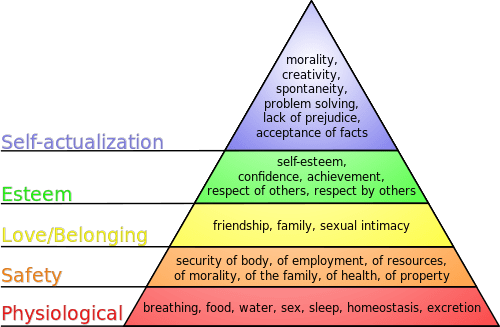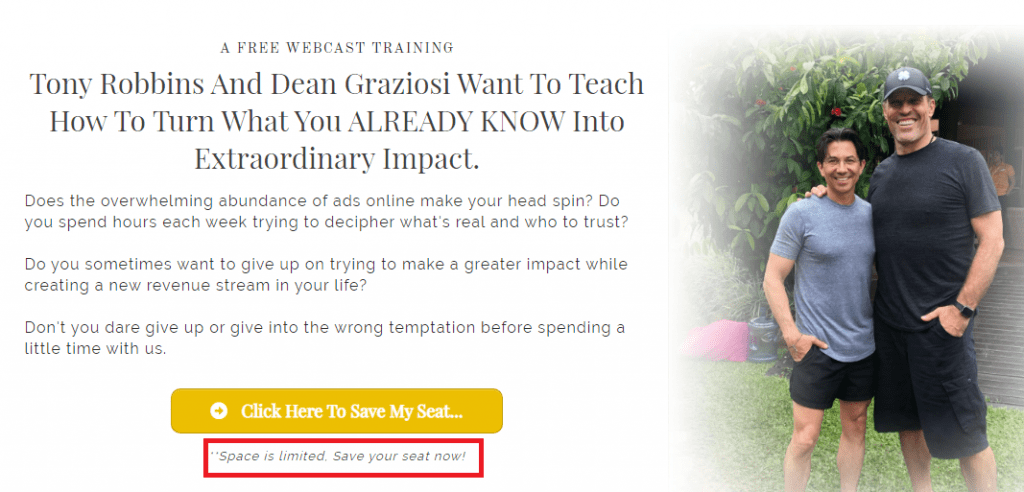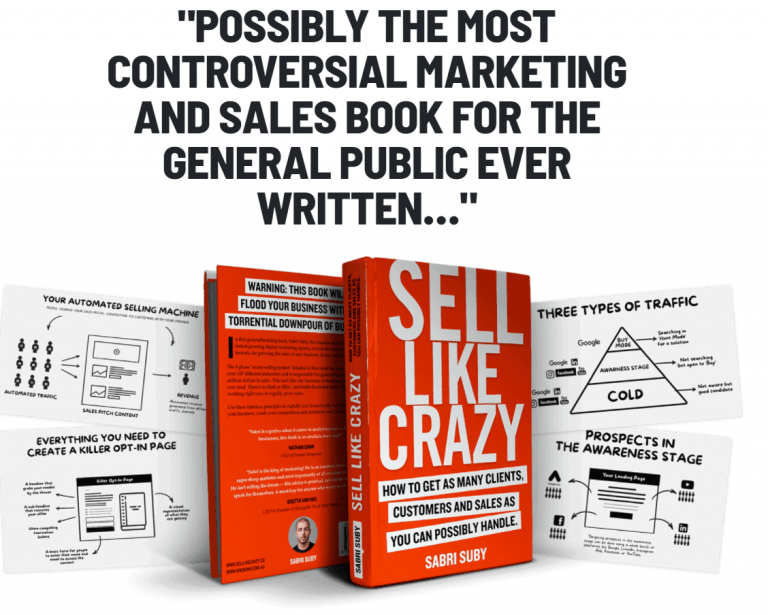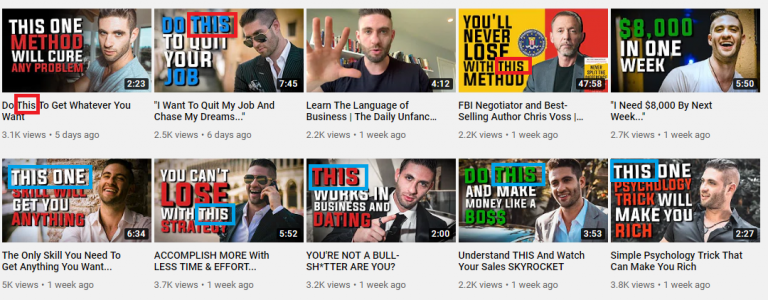Learn To Become A Digital Marketing Wizard Fast, Without Spending Money
This is the approach to learning digital marketing that almost nobody talks about.
I wish someone had taught me this 10 years ago when I first started studying marketing. If I knew this approach, I would’ve learned so much faster.
The best thing is that it’s basically free. And it can even be a lot of fun.
There are no gimmicks behind this method. It just works.
By the end of this post, you will understand…
- Why you don’t need to spend thousands of dollars on digital marketing courses and coaching
- The best books and resources to learn the foundations of marketing for free
- The #1 thing that will put you ahead of 99% of digital marketing professionals
- How to learn through observation
The Wrong Approach to Learning Marketing
I’ll start with some good news.
You don’t need to spend a lot of money to become really good at marketing. A lot of online marketing gurus like to tell you that you need to spend $1997 on their online course to learn marketing.
But that’s simply not true.
I’m not saying you should never spend money on educating yourself. Sometimes it’s a great investment.
But you can get ahead of 99% of marketers without spending a penny on your education. And you can do that within the next 6 months or less.
Here’s the problem with how most people try to learn marketing…
- They focus on the wrong things
- They buy expensive courses that don’t teach them anything important
- They learn from the wrong people
- They learn the wrong way
There is a much better way to learn marketing. Once I understood this, I was able to accelerate my career in marketing.
Sadly, most marketing gurus won’t teach you this approach. Because it’s not profitable for them. They can’t make any money from you if you follow this approach.
Learn The Basic Principles
You want to be familiar with basic principles in marketing. This will give you the foundation for rapid learning.
These are the resources I would recommend:
Books
- Cashvertising by Drew Eric Whitman (probably the only marketing book you’ll ever need)
- Influence by Robert Cialdini
Blogs
Podcasts
- The Gary Vee Audio Experience
- Perpetual Traffic
- Marketing School
- Amy Porterfield
- The Paid Search Podcast
- The Google Ads Podcast
If you’re new to digital marketing, you’re going to learn a lot from consuming these resources.
At first, most of it won’t really sink in. You will probably understand it on a conceptual level. But you just don’t ‘get it.’
And that’s okay..
You just want to familiarize yourself with the concepts for now.
By following the steps below, you will soon understand these concepts better than 99% of people.
Learn To Become A Problem Solver
If you want to excel in digital marketing, you need to learn how to solve problems.
Think of digital marketing as a process of identifying problems, proposing solutions, implementing these solutions and then measuring the impact of those solutions.
Then rinse and repeat.
When you do this over and over again, you get compounding improvements. You also gain an understanding of what works and what doesn’t work.
Some of your solutions will work. Some of them won’t. Either way, you can learn something from the experience to make you a better digital marketer.
To be an efficient problem solver, you need to be aware of the basic principles in marketing.
If you aren’t aware of these principles, then you will struggle to find effective solutions to the problems.
Understand Human Psychology
Digital marketing experts love to get caught up in things like Facebook Ads, split testing, SEO, webinars, and conversion rate optimization..
And don’t get me wrong. These things are important.
But the most important thing to understand is often overlooked.
If you want to become a top 1% marketer, you have to be obsessed with answering this one question…
“Why do people do what they do?”
Write that question down somewhere.
If you study the world’s best marketers and top brands, it becomes so obvious they understand this incredibly well.
Want people to read your blog?
Then learn why people read blog posts.
Want people to click on your Facebook ads?
Then learn why people click on ads.
Want people to watch your YouTube videos?
Then learn why people are compelled to click on certain YouTube videos.
Want people to remember your brand?
Then learn why people remember some brands and completely forget others.
When you understand what drives human behavior, it changes the way you look at marketing. You don’t need to spend hours studying conversion rate optimization. You’re just going to get higher conversion rates.
I suggested the books Casvertising and Influence because both books will help you understand why people do what they do.
When you read those books, you will begin to learn the principles that drive human behavior. But you still won’t properly understand them unless you follow the next step…
Become Hyper Aware of What Drives Your Own Behavior
In many ways, all humans are actually very similar. We’re all motivated by the same desires.
The only difference is that some people are more driven by certain desires than others.
Some people use Maslow’s Hierarchy of Needs to explain what drives human behavior:

In Cashvertising, Whitman describes what he calls “The Life Force 8.” These are the eight desires that he says drive human behavior. They are:
- Survival/enjoyment of life
- Enjoyment of food and beverages
- Avoiding fear, pain and danger
- Sexual companionship
- Comfortable living conditions
- Superiority and keeping up with the Joneses
- Caring for and protecting loved ones
- Social approval
If you can recognize what desires and motives are driving your own behavior, this will give you a great insight into what’s driving the behavior of other people.
But this can actually be very difficult. If you study behavioral psychology, you learn that people are often unaware of the true motives behind their own behavior.
A friend might tell you they bought a Mercedes Benz for quality and comfort. But their real motive is to impress their friends.
That’s why you need to read books like Cashvertising and Influence first. If you’re aware of the desires that drive human behavior, then you’re more likely to correctly identify the motives behind your own behavior.
You will begin to understand what made you click on a Facebook ad. What made you watch a YouTube video. What made you purchase those new shoes.
Of course, not everyone will be driven by exactly the same motives as you. But understanding your own motives is a good place to start.
Each time you watch a YouTube video, stop and ask yourself what made you click on it. Was it something in the video title? Was it something in the thumbnail?
Try it now… Look at the videos below and notice which ones you feel compelled to watch. Then ask yourself what desires and motives make you feel that way:



Consider what innate desires made you want to watch these videos. What was your emotional response to the video titles and thumbnails?
Next time you watch something on Netflix, ask what motives drove you to watch that program. Next time you share something on Facebook, ask yourself why you were compelled to do it.
Marketing professionals are constantly tapping into your desires to get you to take actions. If you can understand how they are doing it, you will quickly become a much better marketer.
Observational Learning
Observation has taught me more about marketing than any course, seminar or mentor.
But most marketing gurus won’t tell you this. Because observation is free. The marketing gurus on YouTube and Facebook can’t make money by telling you to learn through observation.
To follow the observational learning approach, I suggest starting with Facebook ads.
Scroll through your Facebook feed and look for the sponsored posts, then save the ones that grab your attention.

You can save an ad by clicking on the three dots in the top right of the post, as I have highlighted in the image above. This will give you the option to save post.
Then you can go back and access these saved posts any time.
You can also go to the Facebook ads library and enter any Facebook page to see what ads they are currently running. And then you can save those ads to your collection as well.
Once you have your collection of ads, go through them and try to understand the marketing and psychology behind them.
What to Look For?
Ask yourself the following questions…
- Why did they use that image in the ad?
- What type of language do they use in the text?
- What desires are they appealing to?
- Who is the audience they are targeting?
- Which words have the greatest impact?
Most ads will include a link to a sales page. Click on that link and then follow the same process on their sales page.
You can ask yourself these questions about their sales page:
- What is their call to action? (Eg. buy a product, enter your email address, register for a webinar, etc..)
- Do you personally feel motivated to follow their call to action?
- If so, why? If not, why not?
- How much text do they use?
- What colors do they use and what impact do those colors have?
- What is your emotional response to the page?
- What desires are they appealing to?
Analyze everything. Expert marketing professionals are very deliberate in what they do.
There is a reason behind everything. It’s your job to work out what those reasons are.
If you have read books like Cashvertising and blogs like Digital Marketer, you will start to recognize those concepts being used.
For example, you might read about the concept of scarcity. That is, people are more likely to want something that is in scarce supply.
And then you analyze a sales page like this:

You see at the bottom of the page it says “Space is limited. Save your seat now!”
That’s when the concept of scarcity really sinks in.
A Quick Story of Observational Learning from Dr. Robert Cialdini
Dr. Robert Cialdini is one of the world’s most influential writers on the topic of psychology and business. His book Influence has sold over 3 million copies in 40 different languages.
In his 2016 book Pre-Suasion, Cialdini talks about how he used observational learning to help him write one of his first books.
He didn’t buy a course on writing. Instead, he went to the library and found books written by academics for non-academics.
Through reading these books, he was able to observe the qualities that made books successful or unsuccessful.
Those observations taught him lessons that he never would have learned through a course or other conventional learning methods.
He then went on to publish multiple best selling books.
How I Analyze Marketing
If you want to see how I analyze Facebook campaigns, read my post about Australia’s most popular business coach, Kerwin Rae.
In that post, I break down everything from the images he uses, the colors, the power words, the desires he appeals to.
You can also read my other posts where I analyze seminars and webinars. Such as this one where I break down a $3.2 million presentation by Russell Brunson.
Or this one, where I explain the psychology behind a webinar from Alex Becker.
You will learn more from these posts than just about any overpriced $1000 online marketing course.
And you will begin to understand exactly what to look for when you analyze marketing materials yourself.
Facebook ads is a good place to start for observational learning. But you can apply the same process for YouTube ads, webinars, sales letters, etc..
The more you do this, the faster you will learn.
Summary
You now have the blueprint to learn digital marketing extremely fast and for free.
This is something that just works.
Learn the foundations of marketing and human behavior first. Become obsessed with what desires drive human behavior. And then start analyzing Facebook ads, sales pages, headlines, webinars.
You will quickly develop an understanding of marketing that almost no course (including university courses) can teach you.
I strongly recommend reading the marketing breakdowns I post on this blog. I haven’t seen any other free resources online that analyze marketing campaigns in the level of detail I do.
You can subscribe to my email list to be notified about future posts here.








Thanks for the ideas. Especially liked the list of helpful resources all in one place!